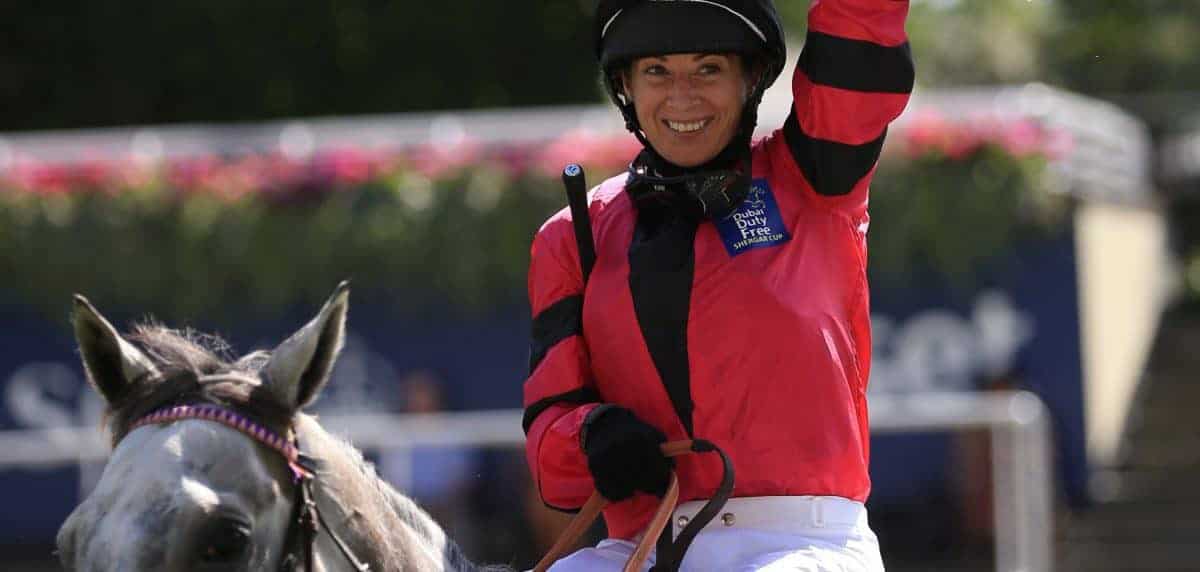Do you have what it takes to become a jockey? Read on to find out…

After watching Horse Town on Horse & Country TV, we’ve decided being a jockey is a pretty exciting career choice. So what does it take to become a jockey – and it is too late for us to consider a change in career?!
H&C spoke to Carol Bramhill, recruitment manager at the British Racing School (BRS) in Newmarket to find out.
If you can already ride, can you start working on a race yard?
No, to become a jockey you need to take your Level 2 Diploma. This ensures that everyone who rides racehorses is safe and knows what they are doing. The first step is get a place on our Level 2 Diploma course, which is also called a pre-apprenticeship. It’s fully residential and is either nine or 14 weeks long, depending on your experience.
You can also train at the Northern Racing College.
It sounds expensive, how much does it cost?
All tuition and learning materials at the BRS are free as it’s government funded. However, you will be means tested, and if you or your parents can afford it, you pay £400 for accommodation.
How can you get on the course?
It isn’t easy, as we have 800 applications and just 200 spaces. If you are aged 16 – 22 years old [that rules us out, then] and are physically fit, we will invite you to one of our selection days where you undergo a fitness assessment and one-to-one interviews. We don’t ask applicants to ride.
So you don’t need to be able to ride?
Exactly. Some of our recruits have never even sat on a horse before. Sometimes it’s better if they haven’t ridden as they don’t have any bad habits. The most important thing is you need to be fit and you need to be brave.
So when can you start working on a race yard?
If you complete the course at the required standard you can then start your apprenticeship, which takes around 18 months. We work with a number of race yards and we will help you find a trainer that suits your ability and ambitions.
Do you get paid on the apprenticeship?
Yes, you will be paid a minimum of £160 per week and accommodation is usually included.
So when can you start racing?
Your trainer has to apply for your jockey licence. When he or she thinks you are good enough, they will apply for a conditional licence (jump) or apprentice licence (flat). You then come back to us, or the Northern Racing College, for two weeks jockey training. During this time you will undergo a lot of fitness tests, riding tests and knowledge based tests about nutrition etc.
Does this licence mean you are professional jockey?
No. This licence allows riders, aged between 16 and 26 who are in full-time employment with a racehorse trainer, to ride against professional jockeys, but with a weight allowance to compensate for their inexperience.
To become a fully-fledged professional, jockeys need to ‘ride out their claim’ (i.e. the weight allowance), which means they need to ride a certain amount of winners.
Sounds like a tough process.
It is. Less than 5% of people on our course go on to become jockeys. Some people find it too scary while others struggle with the weight restrictions. You have to be really dedicated to get to the right weight and be fit enough.
Paul St John-Dennis was one of lads featured in Horse Town and he went become a professional jockey, but he had to lose a lot of weight for the job.
What makes it even harder is there aren’t that many jockey jobs – there are only around 100 fully licenced professional jockeys in the UK.
How many women train to become jockeys?
On our pre-apprenticeship course, around 75% of students are female. On the two-week course, where they get their conditional or apprentice licence, it’s around 50/50. But only a handful of women go on to ride out their claim and become a professional jockey – probably 10% or less.
Find out what life is like in racing and what it takes to make it through racing school by watching Horse Town, and watch heartwarming story of a unsaleable yearling turned racing champion in Against the Odds, 11th May via H&C Play.






